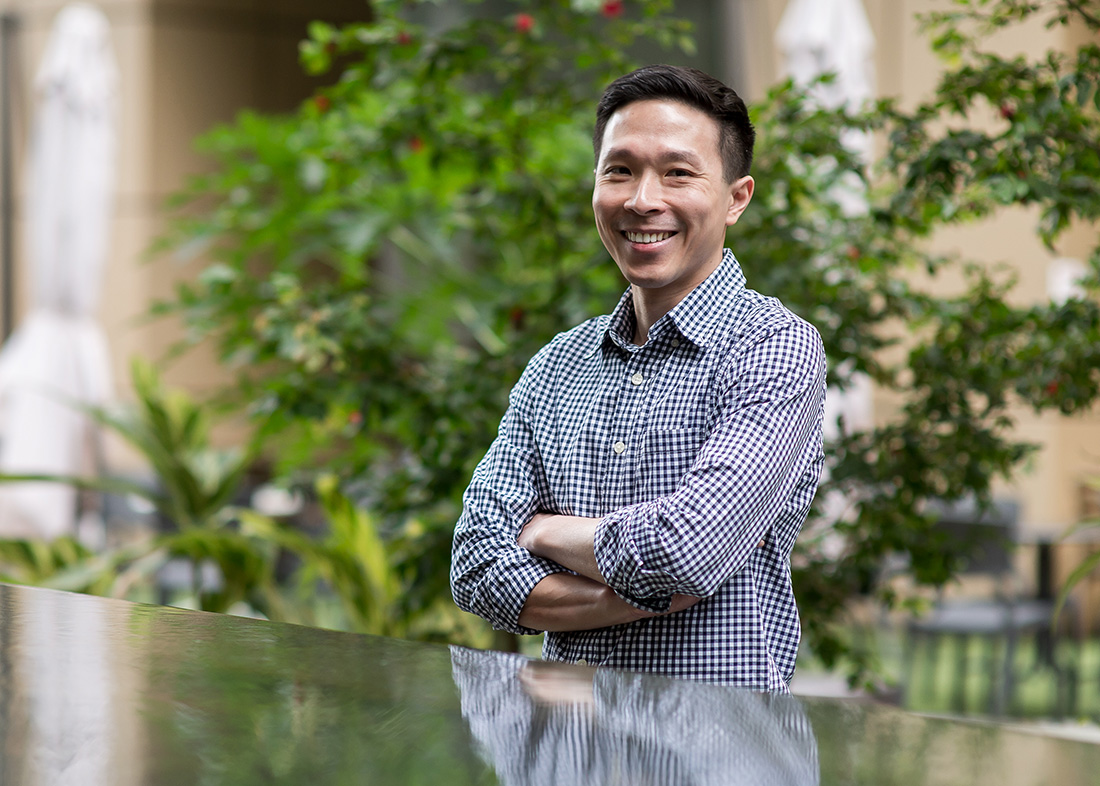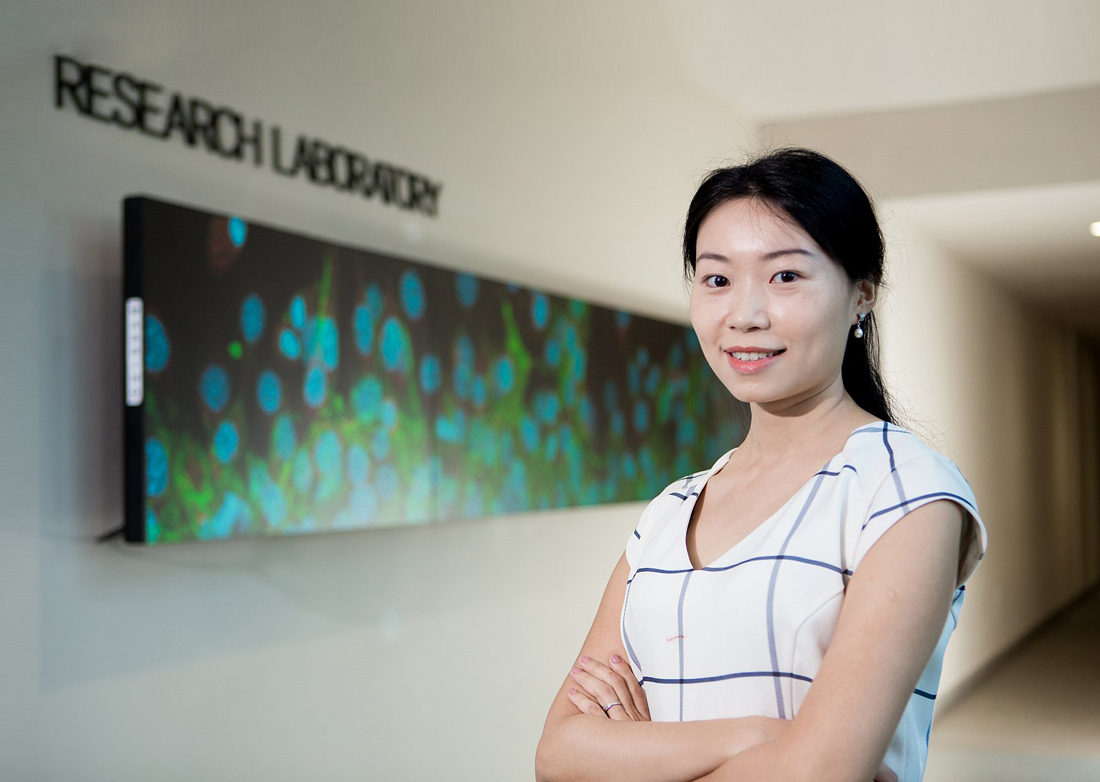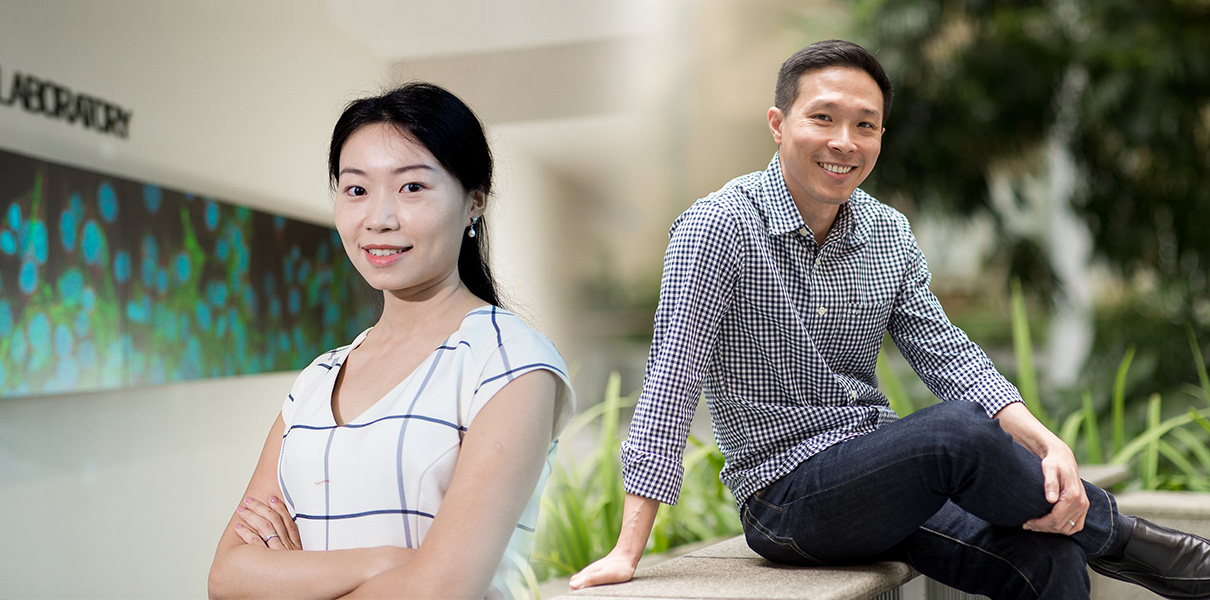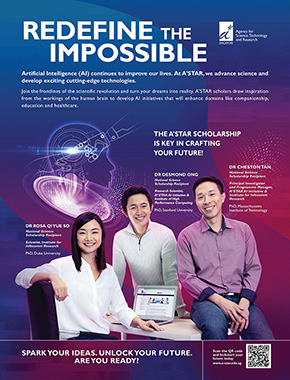In Singapore, the Agency for Science, Technology and Research (A*STAR) is a key player that paves the way for researchers to create technologies that benefit the economy and society. In its aspiration to be a global leader in Science, Technology, and Open Innovation, A*STAR also seeks to nurture and develop talented researchers in Singapore. Dr Cheston Tan’s focus is on the field of Artificial Intelligence (AI). As a programme manager for A*STAR’s AI initiative, the 37-year-old is in charge of recruiting new AI talent and developing new AI programmes. He also leads a research team with the goal of developing AI technology that can interact more naturally with humans.
What was your motivation to apply for the National Science Scholarship?
The NSS is one of the options that sponsors interested students to obtain their PhD at top overseas institutions, and there is a broad range of career opportunities in A*STAR after graduation. It is not uncommon for PhD graduates to move into adjacent fields.

Dr Cheston Tan
National Science Scholarship
Principal Investigator (Human-Centric AI Programme)
Programme Manager
(A*STAR AI Initiative)
PhD in Computational Neuroscience
– Massachusetts Institute
of Technology
Were there any developments in the A*STAR AI Initiative that were particularly exciting to you?
What excited me the most was the opportunity to develop the AI strategy from the ground-up. For many years, A*STAR has had a strong track record in various sub-fields of AI, but this initiative is aimed at developing a more coordinated effort for A*STAR. This includes linking AI research to applications that make sense in A*STAR’s context, such as using AI to accelerate materials science research and drug discovery.
What do you think is the future of AI in Singapore?
Given that Singapore is expected to have a stagnant or shrinking local workforce, as well as a rapidly ageing population, I see Singapore as having a critical need for machines or systems that can work with, help to take care of, and more generally interact well with people. AI will play a critical part, although this also needs to go hand-in-hand with traditional automation and process redesign.
What are the research opportunities available for Computer and Information Science students?
The plentiful opportunities include working in areas related to AI and Machine Learning, such as natural language processing, speech recognition, computer vision, and robotics. There are also opportunities to perform more applied research in areas like Data Analytics, Internet-of-Things, and Blockchain.
Any words of advice for students who are interested in AI and thinking of pursuing this field?
AI is currently a hot and competitive field, but there is also a real risk of the field experiencing a bubble-burst. AI has already gone through two such “AI winters”. My advice would be to not only focus on AI-specific skills and toolkits, as these will come and go, but to be deliberate about picking up more general skills such as software engineering, critical thinking, and communication skills.

Dr Christine Cheung
National Science Scholarship
Independent Fellow (Institute of Molecular and Cell Biology)
Assistant Professor (Lee Kong Chian School of Medicine, NTU)
PhD in Cardiovascular &
Stem Cell biology
– University of Cambridge
For 34-year-old Dr Christine Cheung, her research efforts centre around vascular health in the human body. The crux of her research is finding the means to restore blood vessel health before adverse outcomes, but she also takes time out of her research to pass knowledge on to a new generation in her role as an Assistant Professor at NTU.
What was your motivation to apply for the National Science Scholarship?
When I was young, the picture of a laboratory mouse with what looked like a human ear grown on its back had awed me. That was my first notion of regenerative medicine. I took keen interests in Science and participated actively in various school science and engineering competitions. My motivation to pursue the National Science Scholarship was firm.
What are the career opportunities you have had thanks to this scholarship?
Returning to our vibrant research ecosystem certainly helps to broaden my perspectives and facilitate interdisciplinary collaborations with clinicians and engineers. This scholarship has been instrumental in supporting me to win prestigious fellowships, such as the Independent Fellowship from the A*STAR Institute of Molecular and Cell Biology, followed by the Nanyang Assistant Professorship from NTU.
How has A*STAR aided you in your research into vascular health?
My one-year research attachment at A*STAR not only piqued my interest in stem cell biology, but also in the power of stem cells to regenerate functional tissues. This experience led me to undertake my PhD training at the University of Cambridge, where I invented methods to convert human stem cells into blood vessel cells, resembling those found in the brain and heart. Now we can use that to make blood vessel cells from specific individuals in order to study their vascular health more closely.
What sort of progress do you hope to make with your research in the coming years?
We hope to understand what makes certain people genetically predisposed to vascular diseases. By creating personalised blood vessel models, we can capture the complex genetics of patients and investigate how risk genotypes are linked to the person’s underlying vascular health. We are working towards genetic testing to predict risk of developing certain diseases due to dysfunctional blood vessels.
How would you encourage aspiring biomedical scientists who want to enter this, or other fields of research?
Research is hard work. Hard work may not necessarily commensurate with success but without it, one won’t get anywhere. Find a purpose in what you aspire to do, as it sustains your passion. We should bear in mind that one’s life is a marathon, not a sprint. Make the best of any learning opportunities that you have, help the underprivileged and stay humble. The most meaningful thing about biomedical research is its impact on healthcare to benefit humanity.

